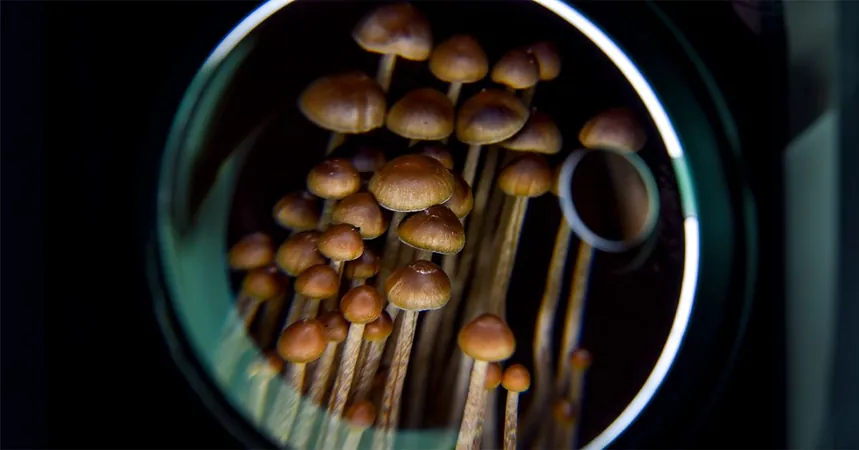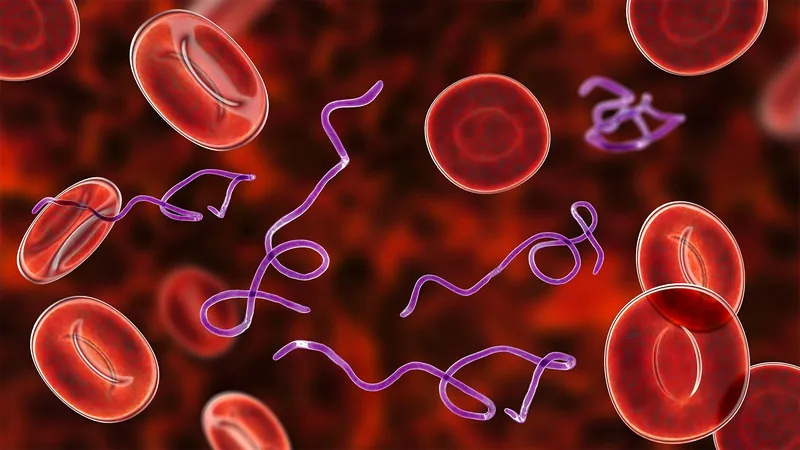
Psychedelics vs. SSRIs: Could Psilocybin Be the Future of Depression Treatment?
2024-09-26
Depression affects around 5% of adults globally, a staggering figure highlighting the urgent need for effective treatments. Selective serotonin reuptake inhibitors (SSRIs), one of the most commonly prescribed medications for depression, are known for their side effects, which can include headaches, nausea, insomnia, and diminished sexual drive. Alarmingly, these medications fail to alleviate symptoms in about 30% of those diagnosed.
Recent research from Imperial College London has suggested that psilocybin, a psychedelic compound found in certain mushrooms, may offer similar benefits to SSRIs but without the negative side effects. The findings, published in the esteemed journal *Lancet eClinical Medicine* and showcased at the 37th European College of Neuropsychopharmacology Congress, provide new hope for patients seeking alternatives to traditional antidepressants.
In this groundbreaking study, 59 adults with moderate-to-severe depression were recruited. Half of the participants received two doses of psilocybin (25 milligrams each), while the other half took a 6-week course of an SSRI known as escitalopram. Alongside the medication, participants were given approximately 20 hours of psychological support throughout their treatment.
At the conclusion of the study, both groups exhibited notable reductions in depression severity, with the psilocybin group reporting significantly higher remission rates. David Nutt, professor of Neuropsychopharmacology at Imperial College, emphasized that psilocybin disrupts the negative thought patterns essential to the experience of depression. He noted that although both treatments showed improvements, psilocybin led to better long-term outcomes related to social functioning and psychological connectedness.
Dr. David Erritzoe, co-first author of the study, echoed this sentiment, stating that fostering a sense of connection and meaning in life could dramatically enhance overall well-being for those battling depression. The study suggests that psilocybin therapy may not only target depression symptoms but also promote a holistic approach to mental health, potentially leading to more sustainable improvements in quality of life.
Despite these promising results, experts acknowledge that practical barriers to accessing psilocybin therapy remain. Dr. David Merrill pointed out that while research into psychedelics is exciting, the reality of implementing these treatments on a wide scale presents challenges. Comparatively, SSRIs are readily available, and the healthcare system must navigate hurdles to make psilocybin a feasible option for all patients.
In light of this research, there are ongoing studies exploring the effects of psilocybin on various conditions, including OCD, anorexia, and even addiction. The scientific community is eager to uncover the mechanisms of how psilocybin works and whether its effects can be replicated through non-drug interventions.
As we move forward, the push for alternatives to traditional antidepressants is crucial for addressing the widespread mental health crisis. The prospect of psilocybin as a viable treatment option has opened new avenues for research, with hopes of providing relief to millions who currently struggle with depression. Get ready: the future of mental health treatments may be just around the corner!





 Brasil (PT)
Brasil (PT)
 Canada (EN)
Canada (EN)
 Chile (ES)
Chile (ES)
 España (ES)
España (ES)
 France (FR)
France (FR)
 Hong Kong (EN)
Hong Kong (EN)
 Italia (IT)
Italia (IT)
 日本 (JA)
日本 (JA)
 Magyarország (HU)
Magyarország (HU)
 Norge (NO)
Norge (NO)
 Polska (PL)
Polska (PL)
 Schweiz (DE)
Schweiz (DE)
 Singapore (EN)
Singapore (EN)
 Sverige (SV)
Sverige (SV)
 Suomi (FI)
Suomi (FI)
 Türkiye (TR)
Türkiye (TR)